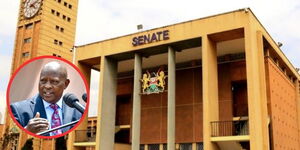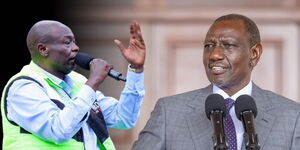Azimio leader Raila Odinga, on Monday, wrote to the Ethics and Anti-Corruption Commission (EACC) demanding investigations into President William Ruto’s administration over the controversial government-to-government (G-to-G) fuel deal.
Through his lawyers, the former Prime Minister wants EACC to recommend the prosecution of individuals in Ruto’s government found to have broken procurement law while signing the controversial deal.
He also requested the Office of the Auditor General to investigate public resources used in the G-to-G deal and other relevant authorities to nullify it as well as clarify that sovereign agreements do not emanate from tenders.
Other demands raised in the two-page letter included a declaration that the operational agreement also subverts laws on procurement and that the Operational Agreement undermines the national interest and embarrasses the people of Kenya.
“Despite the attempt to fashion the oil importation deal as a sovereign arrangement between the Government of Kenya, the Government of Saudi Arabia and the United Arab Emirates, this is a commercial contractual arrangement with private companies,” Raila commented on why he disputed the deal.
The former Prime Minister brought to the attention of EACC that none of the companies supplying fuel to Kenya purported to represent any of the Gulf governments.
“Although it is claimed that these are sovereign contracts, it is also claimed that there was procurement of the international suppliers,” Raila claimed, noting that sovereign contracts could not be borne from the public tendering process.
Raila also raised concern that while the Operational Agreement numerously used the phrase "Government-to-Government Framework", this was not used by the Master Framework Agreement on which the Operational Agreement is based.
He explained that based on the discrepancy, the move subverted Kenya's laws on procurement.
On claims that the deal embarrasses Kenyans, Raila explained that despite the agreement being between the Kenyan government, three Gulf companies and a local commercial bank, it was governed by, interpreted and construed in accordance with the laws of England.
The Government-to-Government Oil Deal
President William Ruto's administration rolled out the G-to-G oil deal in April this year, authorising the country to import fuel on a 180-day credit deal.
At the time, the government explained that the line of credit was to help ease demand for the dollar and tame the depreciation of the Shilling.
The foreign companies that were awarded the oil deal were Saudi Aramco, Abu Dhabi National Oil Company and Emirates National Oil Company.












